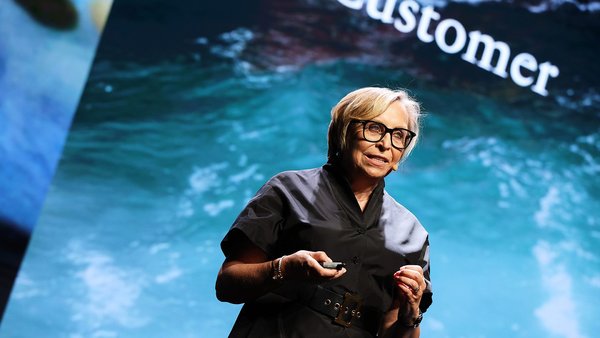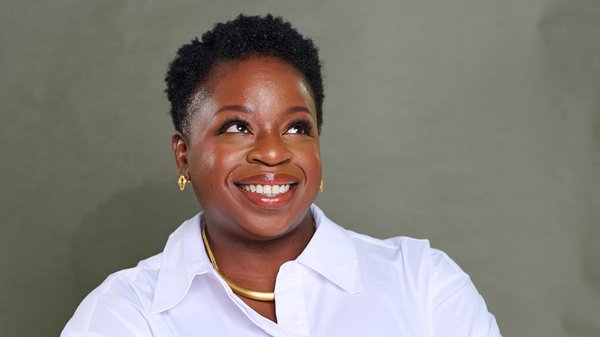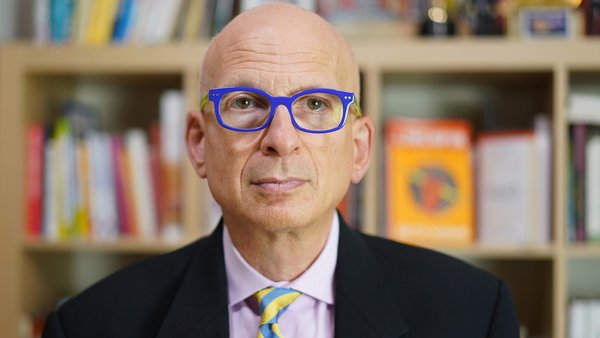Ex-Unilever boss Paul Polman on ‘net positive’ brands /
Former Unilever chief executive Paul Polman reveals how he took the European consumer goods giant back to its roots in pursuit of a higher purpose
Phoebe O’Connell
/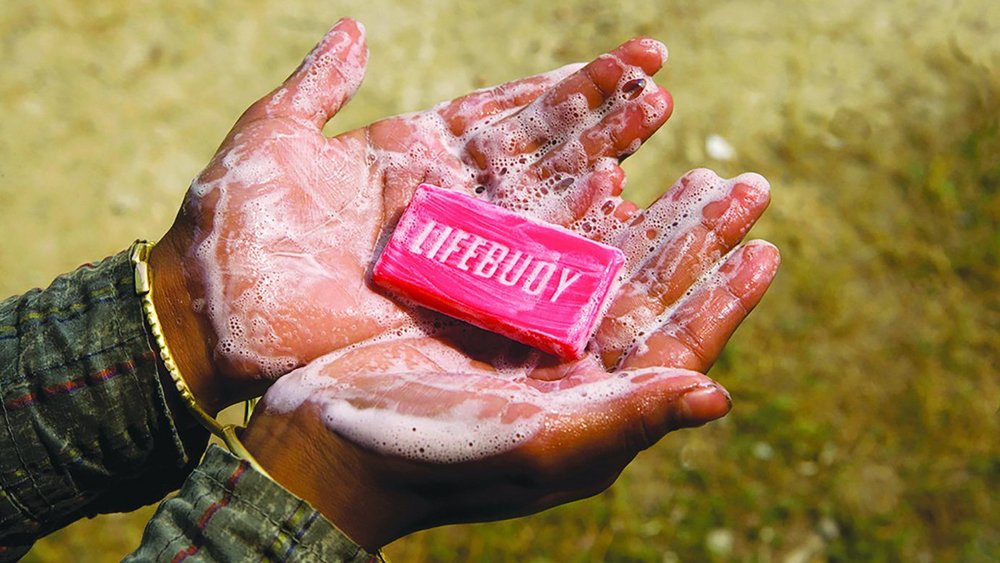
For 10 years, Paul Polman ran one of the world’s largest consumer goods companies. Unilever owns more than 400 household-name brands, including Dove, Ben & Jerry’s and Persil, and claims that 2.5 billion people use its products every day. Last year it racked up €13.5bn ($15.5bn) in sales. Unsurprisingly, all of this comes with a sizeable footprint – in 2021 the company produced around 690,000 tonnes of plastic packaging.
When Polman took the helm in 2009, at the height of the financial crisis, he pledged to restore an ailing Unilever back to health, with a target of doubling revenue while also halving environmental impact by 2020. He unveiled the Sustainable Living Plan in 2010, vowing to better the health and wellbeing of 1 billion people, bring safe drinking water to 500 million people, and improve the livelihoods of 500,000 smallholder farmers and distributors.
Sceptics – then and now – have questioned whether focusing on sustainability is good for the bottom line. At the start of this year, for instance, Terry Smith, a major Unilever shareholder, launched an attack on management in his annual letter to investors, claiming that the company had ‘lost the plot’ and was ‘obsessed with publicly displaying sustainability credentials at the expense of focusing on the fundamentals of the business’. The criticism came after Unilever slightly underperformed against its 2021 benchmark.
Polman, who stepped down in 2019 and is co-founder and chair of Imagine (a foundation that promotes the implementation of global goals through leadership), responded in an op-ed for the Financial Times in January. ‘Let’s not drag down those executives who are genuinely ready to take a stand. Most of them didn’t set out to become societal leaders, but this is the responsibility bestowed upon them by the times. This is a moment that calls for more leadership, not less.’ And this is the message of Net Positive: How Courageous Companies Thrive by Giving More Than They Take, which Polman wrote with sustainable business adviser and writer Andrew Winston.
Polman’s latest book lays out the role of businesses in solving the world’s problems, using lessons from Unilever and other companies to show that sustainable business practices can drive financial success. It argues that a net positive business improves the lives of everyone it touches, takes accountability for its social and environmental impact, and collaborates with competitors and governments to drive transformative change. We spoke to the former Unilever CEO to ask him how he brought his vision to the company, and if net positive business growth is a realistic goal for every leader.
Paul Polman, Former Unilever CEO
When and why did you begin to explore the idea of business as a force for good?
My journey started a long time ago. I grew up just after the war, in the Netherlands. We understood that you had to invest in your communities and in other people to be better off yourselves. Planetary boundaries [the thresholds within which humanity can safely operate, such as stratospheric ozone depletion] were less of an issue – I became more aware of that in the 1990s, with the first Rio conference [The United Nations Conference on Environment and Development]. I started reading books like [Silent Spring by] Rachel Carson and saw many of the beginning signs of stress on the planetary boundaries.
I’ve always believed that business should be a force for good. And the more I entered into business, the more I saw that it actually could be. Of the global economy, 65% is the private sector. It’s 80% of the financial flow, 90% of the job creation. So if we don’t get involved, it doesn’t work.
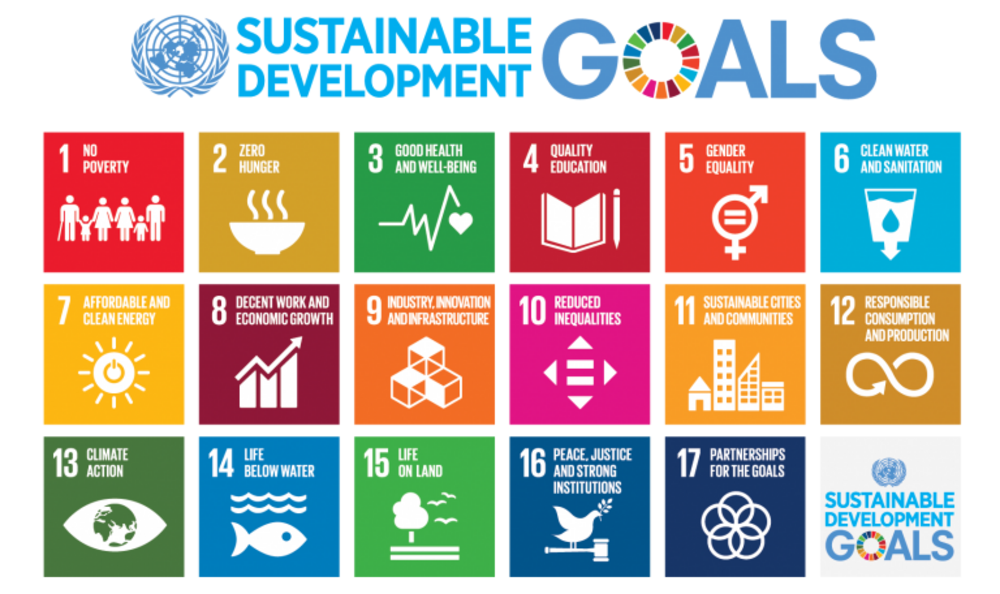
It really clicked when [former] Secretary-General Ban Ki-moon from the UN asked me to be part of the high-level panel to develop the Sustainable Development Goals [launched in 2015]. Working there for two and a half years gave me the opportunity to see many of the social and environmental challenges in the world, but also the enormous opportunities that go with them.
When I started at Unilever in 2009, the company wasn’t in very good shape. After the financial crisis, many companies and governments went back to short-term behaviour, not addressing the underlying issues, but dealing with the symptoms. I had to get to a different business model, make the company healthy again. I thought the best way to do that was to go back to the roots of the company. When [William] Lever started Unilever at the end of the 19th century, one out of two babies in Victorian Britain didn’t make it past year one. His mission was to make hygiene commonplace – not to enrich the shareholder or to build his own ego, to address a societal issue. This is how most businesses started. Going back to Unilever’s roots, we said, let’s make sustainable living commonplace, building on the needs of today and the learnings from the past.
Lord Lever also believed in what he called shared prosperity, where he felt that everybody should benefit. He’s the one who introduced pensions in the UK, a guaranteed six-day work week, and built houses for the workers before the factories were up and running. So we went back to that business model of multiple stakeholders, longer term, purpose at the core.
Paul Polman, Former Unilever CEO
Did you experience any resistance when first introducing this approach at Unilever?
The challenge was that there was no data available, so there was a lot of pushback. First of all, there was low confidence in Unilever, because of its track record. So we created space: we stopped quarterly reporting, we moved compensations to the long term, we stopped giving guidance.
The market was obviously nervous because that model of value creation was not very clear to them. There was no evidence really at scale – shareholder primacy still dominates, but it dominated even more then.
During Covid-19, we saw that companies and the financial funds that have focused on ESG [environmental, social and governance] have done better. So the market is now starting to move and the evidence is a bit better than we had at that time. We can now show that if a company actively attacks the issues of climate change, it has better results. If a company is more diverse, it is more likely to have better results. If the companies are driven by a higher purpose, the employees are more motivated, and they get better results.
We’ve come a long way – everything is measurable and that makes it easier. Most businesses are now aware of the ‘why’, 95% of the businesses say we don’t want to go back to where we came from. The financial market is stepping up enormously because they see the opportunity. Momentum is building. But it’s tough, because we’ve waited so long to address these major challenges of climate change and inequality, it’s all happening in a moment in which we also have technological revolution, governments not working, and multilateralism at a low point, which I think is a direct result of not addressing the issues. That’s why we elect these populists or nationalists or xenophobes – you might even say things like Trump or Brexit are symptoms of that.
What are the challenges for leaders who want to adopt a net positive approach?
This transition is complex for a CEO because it comes to us at the scale of the Industrial Revolution but at the speed of the technological revolution. We have to completely decarbonise our global economy, we have to change our food system (which is a major driver of climate change), we have to change our mobility system, the way we design our infrastructure. Anywhere you look, major transformation needs to happen in a short period of time because we don’t have until 2050 to solve all these issues, we need to be well on our way between now and 2030.
The second challenge is our own ambition. It’s really a leadership issue – many of the solutions could be found today if we really cared. You can’t have a company transformation if you don’t have a leadership transformation, and you can’t have a societal transformation if you don’t have company transformations. So, leaders – do you care? Are you willing? Are you courageous enough to take responsibility for your total impact in the world?
It doesn’t work anymore, to outsource your value chain and also think you can outsource your responsibilities. Facebook is a good example – if you don’t take responsibility for childhood addiction, undermining democracy, or hate speech on the platform, people are not going to like you long term. So leadership is the bigger challenge. Are we aware of the issues? Are we conscious enough? Are we willing to set the targets that are needed versus what we can get away with? Are we willing to work with other people to solve it?
This brings me to the third challenge: trust. Someone very wise once said, to do the same thing over and over again and expect different results is the definition of insanity. We have to work differently. Number 17 of the Sustainable Development Goals is ‘partnership for the goals’. How do you build that trust to get these broader partnerships that are needed to solve issues? At Unilever, we can only do so much. We cannot stop ocean plastics alone. Or deforestation. In 2015 we issued two Human Rights Reports, taking responsibility for our total value chain, but we saw very few other companies and very few governments following, perhaps with the exception of the UK’s Modern Slavery Act.
You need governments to work together with businesses to really tackle these broader issues. Climate change is a good example where you have subsidies that push you in a different direction. It’s the same in the food system, where the Common Agricultural Policy stimulates the wrong behaviour. Or, if you want green infrastructure, you need governments to have a policy, like putting charging station infrastructure in place. To be able to tackle the bigger issues, things need to happen in partnership. I’m confident it can be done but it is a challenge because of trust.
Paul Polman, Former Unilever CEO

Your book features many case studies demonstrating the success of the Sustainable Living Plan – what are some of the major achievements?
We have reached over 1.1 billion people with handwashing. There are 4 million children that still die before the age of five in this world because of pneumonia, diarrhoea, things that can be avoided by the simple act of handwashing. We set a goal to reach 1 billion people, to improve their health and wellbeing. People thought we were crazy. We had to work together with USAID, the Gates Foundation, Unicef and others to reach schools and handwashing programmes. Not only did we contribute to saving lives in a serious way, but it has also directly linked to our business success.
We put these alliances together, which wasn’t easy – especially when you work with multilateral institutions and they are linked to specific brands. But when you’re driven by this higher purpose, literally saving people’s lives, it’s very motivational. So it’s not surprising to me that although the objective was audacious, in these 10 years, we’ve actually exceeded it. And the Lifebuoy brand, which was at the core of that, continued to grow double digits throughout that period. A dying brand, when I arrived at Unilever – because it was one of the oldest original brands and was frankly neglected – became one of our fastest-growing brands.
We also worked with the government of Rwanda and The Wood Foundation in the UK, putting the needed funds together to create a very sustainable, drought resistant tea plantation in Rwanda, employing over 100,000 people, putting a circular economy in place where the manure from the cows is actually heating the factories. Designing things that are made for the future requires these broader partnerships. So we’re proud of that. It was very much for us about livelihoods, creating jobs, inclusion. There are still 3.5 billion people that live on less than $5 a day in this world, as well as the many people who are excluded from the workforce. How can you provide the minimum of dignity and respect and equity by providing jobs and opportunities, so that the children don’t have to work when they’re young and can go to school?
We’re proud of working with governments in Ethiopia to change their healthcare system, or going into Myanmar to set up sustainable agriculture, always with the mindset of longer term, of multi-stakeholder. And we’ve never been disappointed. Obviously, there are trade-offs, but at the end of the day, over the 10 years, Unilever had a 300% shareholder return, outgrowing its competitors in top and bottom line every year. We were able to show that it was actually a driver of performance and that it was actually good for the shareholders, provided you believed in the longer term.
Paul Polman, Former Unilever CEO
Do you think that this net positive approach is realistic for a business of every size?
Well, it’s an aspiration. Societal expectations will change over time, so this is an aspiration. The Sustainable Development Goals have this objective to leave no one behind, to eradicate poverty in a sustainable and equitable way. That requires us to live in harmony with Planet Earth, but also with future generations. I believe that vision is totally possible. It’s a North Star. As we say in the book, no company can achieve that at once and no company is there yet. Unilever isn’t there yet, either. But it’s where every company should be heading towards to have a viable economy and a planet.
Increasingly, we see companies taking elements of ‘net positive’ in their business models and being rewarded for it, companies making commitments to move to regenerative agriculture or restoring natural habitats, or providing significant investments to train people so that they are flexible for future jobs, or ensuring that there are minimum wages or fair living standards in their whole value chain. We’re seeing companies go beyond corporate social responsibility, which is about ‘less bad’. Just being ‘less bad’ is not good enough anymore. In 2021, World Overshoot Day, which is the [point of the year by which] we use up more resources than the world can replenish, was 29 July. We need to think restorative, reparative, regenerative. And the companies that do that will position themselves better, they will have more motivated employees, more resilient operations, better relationships with their value chain, they will be closer in touch with the reality of society, and probably be more innovative.
What is your advice to leaders?
It starts with the mindset to think big enough and to set the targets, which is the toughest thing. At Unilever, we not only took responsibility for our total impact in the world, but we also set the targets that were needed, which were quite uncomfortable. And that was the Unilever Sustainable Living Plan. We set 50 targets, people thought we were crazy, I got pushback from many people – ‘You shouldn’t put so many targets out there, what if you don’t reach them?’
But what we said, very simply, was we don’t have all the answers, and we can’t do it alone. And it brought humanity back to business. In many cases, business has boiled down to win/lose, to spreadsheets, to data, and we’ve lost the human aspect. That was clear during the Covid crisis. So we opened the company up and we built trust by putting all the data out there, by sharing it, by holding ourselves accountable. But more importantly, by being humble, by saying we don’t have all the answers, and we need to work with people. Most of the bigger breakthroughs have come when we put the right people together.
Ultimately, you cannot have infinite growth on a finite planet. And anything you can’t do forever is by definition unsustainable. We need to decouple these business models from the usage of environmental resources and that can only happen if we redefine the definition of success. If we put the right measures in place of the things we treasure, you measure what you treasure, so moving from the simple return on financial capital, to return on social and environmental capital. We need to redefine GDP from producing more stuff, to a health and wellbeing measure, where we value the quality of education, peace, the quality of the air we breathe, the restoration of nature. There is enormous value in doing so but it requires us to operate at a higher level of consciousness, and that’s why it starts with individual leadership. Rumi, the 13th-century poet, said it well, when he said, ‘Yesterday, I was clever, so I wanted to change the world. Today, I am wise, so I am changing myself.’ And that’s where it starts – with our own consciousness.
Want more of the same? /
We don’t just write about best-in-class campaigns, interviews and trends. Our Members also receive access to briefings, online training, webinars, live events and much more.

